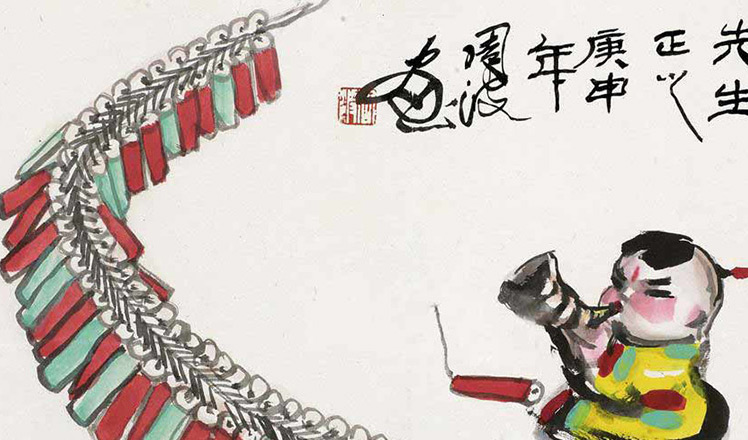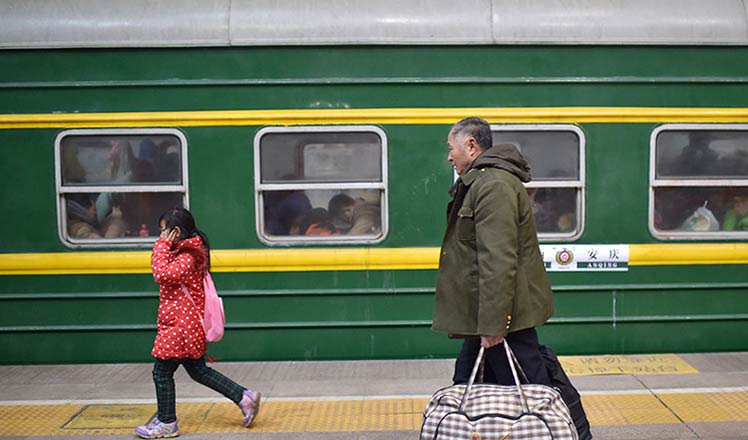Two-child China targeting better public services
Updated: 2016-01-11 17:19
(Xinhua)
|
||||||||
China is aiming to improve its maternal and child healthcare and household registration as it implements the two-child policy.
The country has adopted measures to better allocate maternal and child health resources and train more doctors, said Wang Peian, deputy head of the National Health and Family Planning Commission (NHFPC), at a press conference in Beijing on Monday.
According to the NHFPC, 90 million Chinese women are allowed to have a second child under the two-child policy that took effect on Jan. 1. Sixty percent of them are over 35 years old and 50 percent are aged 40 or older.
"The new policy has increased the likelihood of later-age pregnancies, which are associated with risks including genetic abnormalities and labor problems. Therefore, we need better maternal and child health services," said Wang.
The government is urging universities and medical schools to train more midwives and pediatricians, and calling for higher salaries to make these occupations more appealing, according to Yang Wenzhuang, head of the Department of Community Family Planning with the NHFPC.
As part of China's 13th Five Year Plan covering 2016-2020, leaders have proposed building more hospitals in the poor western part of the country.
Yang said the NHFPC will strengthen its supervision of local authorities issuing regulations that provide people unregistered for family planning with household registration permits, or "hukou," a crucial document that entitles people to social welfare such as medical insurance and access to basic education.
Statistics from 2010 show China has around 13 million unregistered people, among which there are some "black children," second children born illegally under the one-child policy.
"But the portion is small," added Yang.
China has regulated since the 1980s to ban local authorities from linking household registration to family planning policy.
- A glimpse of Spring Rush: little migrant birds on the way home
- Policy puts focus on genuine artistic students
- Police unravel market where babies are bought, sold as commodities
- More older pregnant women expected
- Netizen backlash 'ugly' Spring Festival Gala mascot
- China builds Mongolian language corpus
- 2 Chinese nationals killed, 1 injured in suspected bomb attack in Laos
- New York, Washington clean up after fatal blizzard
- 'Plane wreckage' found in Thailand fuels talk of missing Malaysian jet
- Washington shuts down govt, NY rebounds after blizzard
- 7 policemen, 3 civilians killed in Egypt's Giza blast
- Former US Marine held in Iran arrives home after swap

 Drone makers see soaring growth but dark clouds circle industry
Drone makers see soaring growth but dark clouds circle industry China's Zhang reaches Australian Open quarterfinals
China's Zhang reaches Australian Open quarterfinals
 Spring Festival in the eyes of Chinese painters
Spring Festival in the eyes of Chinese painters
 Cold snap brings joy and beauty to south China
Cold snap brings joy and beauty to south China
 The making of China Daily's Tibetan-style English font
The making of China Daily's Tibetan-style English font
 First trains of Spring Festival travel depart around China
First trains of Spring Festival travel depart around China
 Dough figurines of Monkey King welcome the New Year
Dough figurines of Monkey King welcome the New Year
 Ning Zetao, Liu Hong named China's athletes of the year
Ning Zetao, Liu Hong named China's athletes of the year
Most Viewed
Editor's Picks

|

|

|

|

|

|
Today's Top News
National Art Museum showing 400 puppets in new exhibition
Finest Chinese porcelains expected to fetch over $28 million
Monkey portraits by Chinese ink painting masters
Beijing's movie fans in for new experience
Obama to deliver final State of the Union speech
Shooting rampage at US social services agency leaves 14 dead
Chinese bargain hunters are changing the retail game
Chinese president arrives in Turkey for G20 summit
US Weekly

|

|








